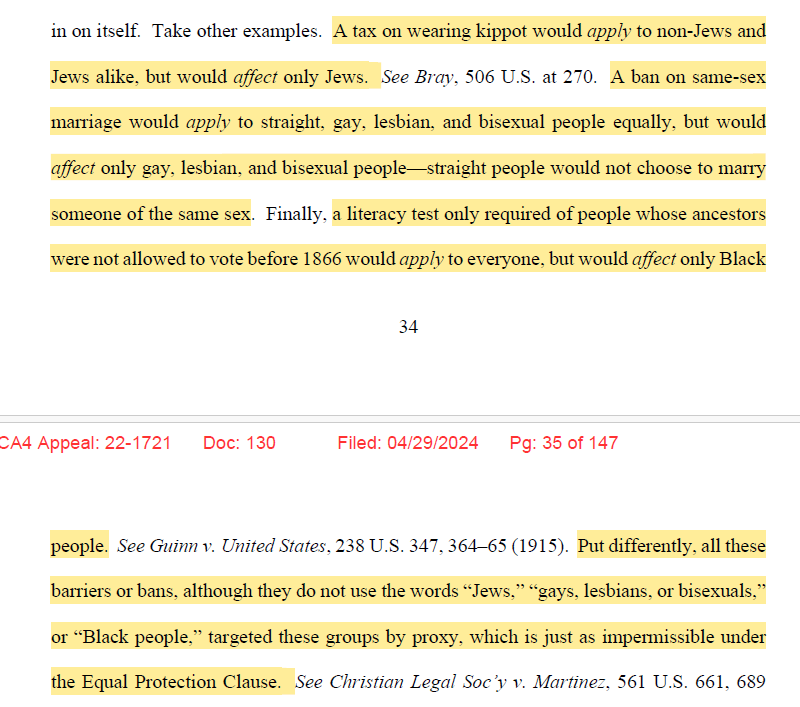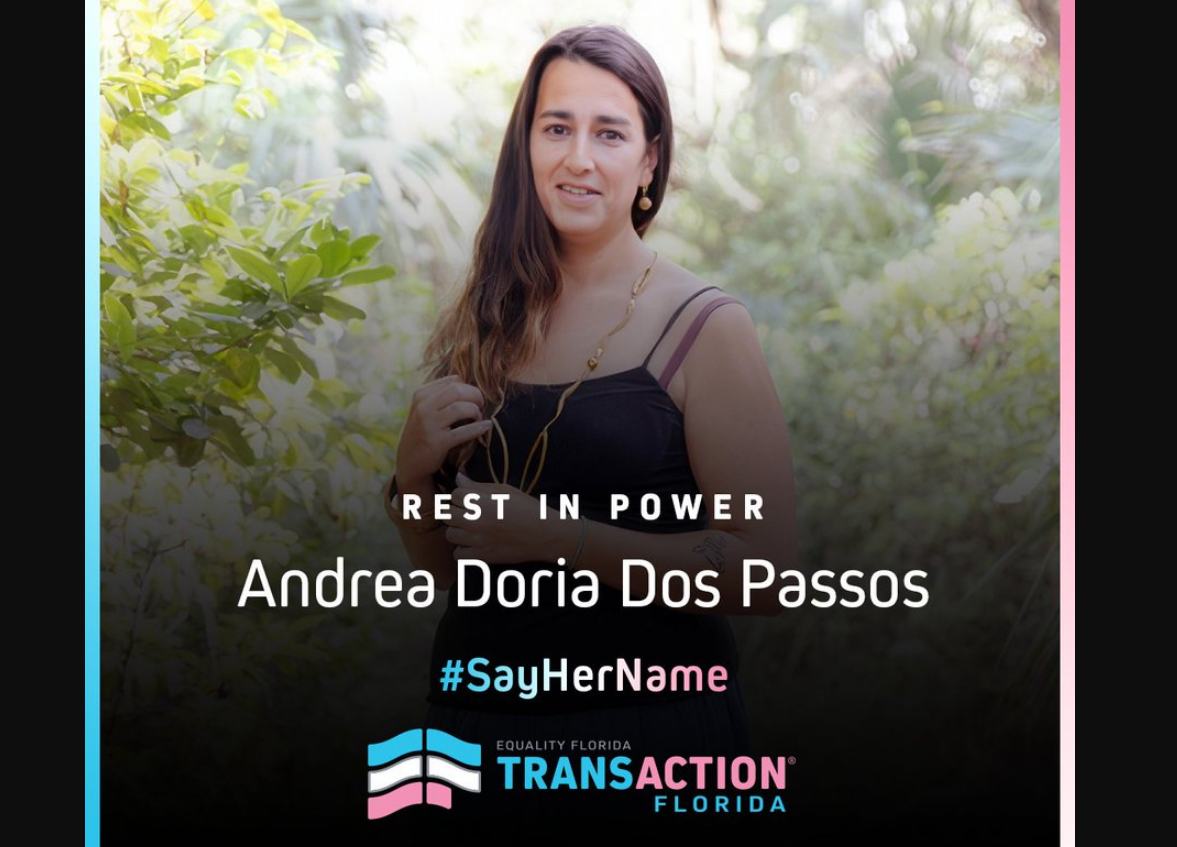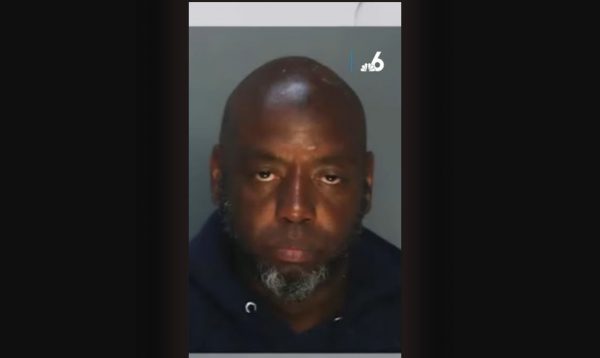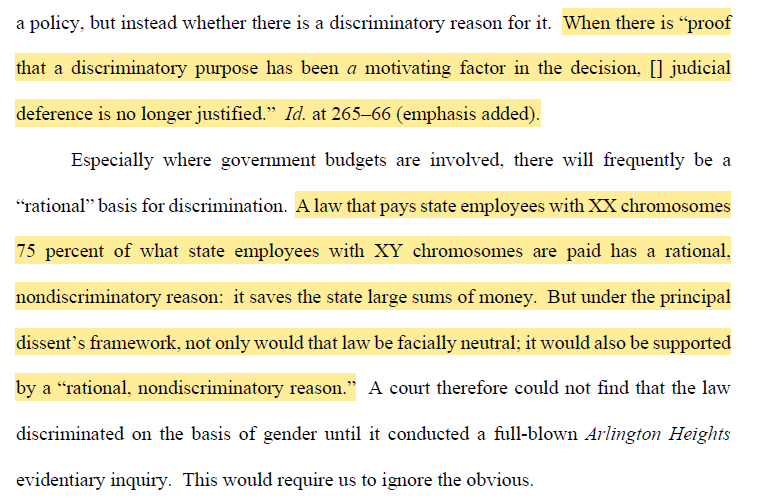National
Arizona LGBTQ leaders call on HRC to end support for Sinema
Angry over the filibuster, activists urge donors to cut funding

In a little-noticed development, more than 100 LGBTQ community leaders and allied supporters in Arizona sent a joint letter in January to the Human Rights Campaign, the nation’s largest LGBTQ civil rights group, demanding that it withdraw its political and financial support for U.S. Sen. Kyrsten Sinema (D-Ariz.) unless and until Sinema ends her support for the Senate filibuster.
The letter points out that by continuing to refuse to join efforts by Senate Democratic leaders to end the filibuster, which requires 60 votes to pass legislation, Sinema is helping Republicans block progressive legislation already approved by the U.S. House of Representatives, including the Equality Act, the LGBTQ nondiscrimination bill stalled in the Senate.
The LGBTQ leaders, who drafted the letter in partnership with the Arizona Coalition to End the Filibuster, told HRC they will call on HRC’s supporters to stop funding the group unless it backs away from its support for Sinema.
“The toll of Sinema’s obstruction – which HRC continues to tacitly support and thus enable – for your constituents is growing each day,” the letter states, adding, “with the filibuster blocking popular legislation, backed by all or nearly all Democrats, to address the urgent issues of reproductive justice, immigrant rights, gun violence, police reform, workers’ right to organizing, raising the minimum wage, and more.”
In a statement released shortly after sending their Jan. 19 letter to HRC, the Arizona LGBTQ leaders said HRC’s Interim President Joni Madison sent them a letter on Jan. 24 saying that HRC had privately “made it clear” to Sinema’s staff that HRC disagrees with her pro-filibuster positions, especially her vote against temporarily suspending the filibuster to enable the Senate to pass two voting rights bills.
But the statement says Madison’s letter “did not commit to any public statement toward Sinema, to a strong public position in favor of ending the filibuster, or to withdraw support from Sinema if she maintains her obstructionist stance that blocks passage of the Equality Act, critical voting rights legislation, and so much more.”
HRC, along with many other LGBTQ organizations, has supported Sinema since the time of her election in 2018, when she became the nation’s first openly bisexual U.S. senator. At the time of her election, Sinema expressed strong support for the Democratic Party’s progressive agenda. She also signed on as a co-sponsor of the Equality Act and has since said she would vote for the LGBTQ rights measure.
But since 2020, she has stated she supports the filibuster because she, like other supporters of the controversial Senate rule, claim it fosters bipartisanship by requiring both parties to compromise as a means of passing controversial legislation.
Nearly all political observers in Washington believe the Equality Act, which passed in the House last year, is dead in the Senate without the lifting of the filibuster.
A spokesperson for Sinema’s office in Washington did not respond to a request from the Washington Blade for comment and a possible interview with the Arizona senator to obtain her thoughts on the growing opposition to her continued support of the Senate filibuster.
In response to a request from the Blade for comment on the Arizona LGBTQ leaders’ criticism of HRC’s actions toward Sinema, an HRC spokesperson referred the Blade to an updated statement on Sinema that HRC released on Feb. 9, which it attributes to the “HRC staff.”
The statement says HRC strongly supported efforts by Senate Democratic leaders to suspend the filibuster to enable the two voting rights bills to pass, which supporters said were needed to counter the numerous laws enacted by GOP-controlled state legislatures to restrict voting rights of minorities. The statement says HRC was especially troubled that Sinema and Sen. Joe Manchin (D-W.Va.) joined Republicans in voting against the temporary suspension of the filibuster, which resulted in the two voting rights bills dying on the Senate floor.
“We must hold politicians accountable,” the HRC statement says. “We have been working diligently to make sure we hold Senator Sinema accountable now and, in the future,” it says.
“Prior to the vote, HRC directly called on her to enable the Senate to change its rules to allow voting rights reform to pass; and then we directly let her know that we felt betrayed by her actions after the vote,” the statement continues.
The statement says HRC will use the vote by senators on the two voting rights bills, along with votes on other bills, to rate senators in HRC’s Congressional Scorecard, which rates all members of Congress on issues deemed important to the LGBTQ community.
HRC assigned Sinema a rating of 100, its highest possible rating, during the 114th Congress when Sinema served in the U.S. House. It gave her a 94 rating for the 115th Congress while she was also in the House. HRC assigned her a rating of 89 for the 116th Congress during her first two years as a U.S. senator.
To the disappointment of the Arizona LGBTQ leaders, the HRC statement does not commit to publicly denouncing Sinema or ending its political or financial support for the Arizona senator. Instead, the statement says HRC “is structured differently than the organizations that publicly condemned the Senator.”
According to its statement, HRC “endorses candidates, supports them through their election, works with them to pass legislation and policy, and holds them accountable for their commitments and actions.” It notes that with three years left in Sinema’s term in office, “we still have much work to do,” adding that HRC will be working on a wide range of pending legislation and judicial nominations, including the Voting Rights Act and the Equality Act.
“Strategically, we have to consider the long-range view and the impact of the work ahead,” the statement says. “With that in mind, we will continue to work with the current Senate to advance equality for our community in all of our intersecting identities. And as part of that work, we will continue to be honest with those who fall short of their commitments to us and our community,” the statement concludes.
In their joint letter to HRC, the Arizona LGBTQ leaders stated, “[W]e call on Human Rights Campaign to publicly disavow any future endorsement or financial support for Senator Sinema if she does not reverse her position on the filibuster.” The statement adds, “And we call on all donors to HRC to withhold further contributions until this is done.”
Federal Government
4th Circuit rules gender identity is a protected characteristic
Ruling a response to N.C., W.Va. legal challenges

BY ERIN REED | The 4th U.S. Circuit Court of Appeals ruled Monday that transgender people are a protected class and that Medicaid bans on trans care are unconstitutional.
Furthermore, the court ruled that discriminating based on a diagnosis of gender dysphoria is discrimination based on gender identity and sex. The ruling is in response to lower court challenges against state laws and policies in North Carolina and West Virginia that prevent trans people on state plans or Medicaid from obtaining coverage for gender-affirming care; those lower courts found such exclusions unconstitutional.
In issuing the final ruling, the 4th Circuit declared that trans exclusions were “obviously discriminatory” and were “in violation of the equal protection clause” of the Constitution, upholding lower court rulings that barred the discriminatory exclusions.
The 4th Circuit ruling focused on two cases in states within its jurisdiction: North Carolina and West Virginia. In North Carolina, trans state employees who rely on the State Health Plan were unable to use it to obtain gender-affirming care for gender dysphoria diagnoses.
In West Virginia, a similar exclusion applied to those on the state’s Medicaid plan for surgeries related to a diagnosis of gender dysphoria. Both exclusions were overturned by lower courts, and both states appealed to the 4th Circuit.
Attorneys for the states had argued that the policies were not discriminatory because the exclusions for gender affirming care “apply to everyone, not just transgender people.” The majority of the court, however, struck down such a claim, pointing to several other cases where such arguments break down, such as same-sex marriage bans “applying to straight, gay, lesbian, and bisexual people equally,” even though straight people would be entirely unaffected by such bans.
Other cases cited included literacy tests, a tax on wearing kippot for Jewish people, and interracial marriage in Loving v. Virginia.
See this portion of the court analysis here:

Of particular note in the majority opinion was a section on Geduldig v. Aiello that seemed laser-targeted toward an eventual U.S. Supreme Court decision on discriminatory policies targeting trans people. Geduldig v. Aiello, a 1974 ruling, determined that pregnancy discrimination is not inherently sex discrimination because it does not “classify on sex,” but rather, on pregnancy status.
Using similar arguments, the states claimed that gender affirming care exclusions did not classify or discriminate based on trans status or sex, but rather, on a diagnosis of gender dysphoria and treatments to alleviate that dysphoria.
The majority was unconvinced, ruling, “gender dysphoria is so intimately related to transgender status as to be virtually indistinguishable from it. The excluded treatments aim at addressing incongruity between sex assigned at birth and gender identity, the very heart of transgender status.” In doing so, the majority cited several cases, many from after Geduldig was decided.
Notably, Geduldig was cited in both the 6th and 11th Circuit decisions upholding gender affirming care bans in a handful of states.
The court also pointed to the potentially ridiculous conclusions that strict readings of what counts as proxy discrimination could lead to, such as if legislators attempted to use “XX chromosomes” and “XY chromosomes” to get around sex discrimination policies:
Importantly, the court also rebutted recent arguments that Bostock applies only to “limited Title VII claims involving employers who fired” LGBTQ employees, and not to Title IX, which the Affordable Care Act’s anti-discrimination mandate references. The majority stated that this is not the case, and that there is “nothing in Bostock to suggest the holding was that narrow.”
Ultimately, the court ruled that the exclusions on trans care violate the Equal Protection Clause of the Constitution. The court also ruled that the West Virginia Medicaid Program violates the Medicaid Act and the anti-discrimination provisions of the Affordable Care Act.
Additionally, the court upheld the dismissal of anti-trans expert testimony for lacking relevant expertise. West Virginia and North Carolina must end trans care exclusions in line with earlier district court decisions.
The decision will likely have nationwide impacts on court cases in other districts. The case had become a major battleground for trans rights, with dozens of states filing amicus briefs in favor or against the protection of the equal process rights of trans people. Twenty-one Republican states filed an amicus brief in favor of denying trans people anti-discrimination protections in healthcare, and 17 Democratic states joined an amicus brief in support of the healthcare rights of trans individuals.
Many Republican states are defending anti-trans laws that discriminate against trans people by banning or limiting gender-affirming care. These laws could come under threat if the legal rationale used in this decision is adopted by other circuits. In the 4th Circuit’s jurisdiction, West Virginia and North Carolina already have gender-affirming care bans for trans youth in place, and South Carolina may consider a similar bill this week.
The decision could potentially be used as precedent to challenge all of those laws in the near future and to deter South Carolina’s bill from passing into law.
The decision is the latest in a web of legal battles concerning trans people. Earlier this month, the 4th Circuit also reversed a sports ban in West Virginia, ruling that Title IX protects trans student athletes. However, the Supreme Court recently narrowed a victory for trans healthcare from the 9th U.S. Circuit Court of Appeals and allowed Idaho to continue enforcing its ban on gender-affirming care for everyone except the two plaintiffs in the case.
Importantly, that decision was not about the constitutionality of gender-affirming care, but the limits of temporary injunctions in the early stages of a constitutional challenge to discriminatory state laws. It is likely that the Supreme Court will ultimately hear cases on this topic in the near future.
Celebrating the victory, Lambda Legal Counsel and Health Care Strategist Omar Gonzalez-Pagan said in a posted statement, “The court’s decision sends a clear message that gender-affirming care is critical medical care for transgender people and that denying it is harmful and unlawful … We hope this decision makes it clear to policy makers across the country that health care decisions belong to patients, their families, and their doctors, not to politicians.”
****************************************************************************

Erin Reed is a transgender woman (she/her pronouns) and researcher who tracks anti-LGBTQ+ legislation around the world and helps people become better advocates for their queer family, friends, colleagues, and community. Reed also is a social media consultant and public speaker.
******************************************************************************************
The preceding article was first published at Erin In The Morning and is republished with permission.
National
GLSEN hosts Respect Awards with Billy Porter, Peppermint
Annual event aims to ‘inspire a lot of people to get active’

GLSEN will host its annual Respect Awards April 29 in New York, with guests including Miss Peppermint and Billy Porter.
Respect Awards director Michael Chavez said that the event will be moving.
“It will inspire a lot of people to get active and take action in their own communities and see how much more work there is to do, especially with all of the harmful things happening,” he said.
At the event, they will recognize the Student Advocate of the Year, Sophia T. Annually, GLSEN recognizes a student from around the country who is impacting their community.
“Sophia is doing incredible work advocating for inclusive sex education that is LGBTQ+ affirming, working with Johns Hopkins University to implement curriculum.” Chavez said.
Chavez calls the students that attend the Respect Awards the “biggest celebrities” of the evening.
“It is really important for the adults, both the allies and the queer folks, to hear directly from these queer youth about what it’s like to be in school today as a queer person,” he said.
GLSEN is a queer youth advocacy organization that has been working for more than 30 years to protect LGBTQ youth.
“GLSEN is all hands on deck right now, because our kids are under direct attack and have been for years now,” said actor Wilson Cruz.
Cruz is the chair of GLSEN’s National Board, which works to fundraise and strategize for the organization.
“I think we are fundamental to the education of LGBTQ students in school,” he said. “We advocate for more comprehensive support at the local, national, and federal levels so our students are supported.”
Chavez is one of the students that was impacted by this work. He led his school’s GSA organization and worked with GLSEN throughout his youth.
Cruz said Chavez is doing what he hopes today’s GLSEN students do in the future, which is pay the work forward.
“There’s nothing more powerful than people who have experienced the work that GLSEN does and then coming back and allowing us to expand on that work with each generation that comes forward,” he said.
Florida
Homeless transgender woman murdered in Miami Beach
Andrea Doria Dos Passos attacked while she slept

Gregory Fitzgerald Gibert, 53, who was out on probation, is charged with the second-degree murder of 37-year-old Andrea Doria Dos Passos, a transgender Latina woman who was found deceased in front of the Miami Ballet company facility by a security guard this past week.
According to a Miami Beach Police spokesperson the security guard thought Dos Passos was sleeping in the entranceway around 6:45 a.m. on April 23 and when he went to wake her he discovered the blood and her injuries and alerted 911.
She was deceased from massive trauma to her face and head. According to Miami Beach police when video surveillance footage was reviewed, it showed Dos Passos lying down in the entranceway apparently asleep. WFOR reported: In the early morning hours, a man arrived, looked around, and spotted her. Police said the man was dressed in a black shirt, red shorts, and red shoes.
At one point, he walked away, picked up a metal pipe from the ground, and then returned. After looking around, he sat on a bench near Dos Passos. After a while, he got up and repeatedly hit her in the head and face while she was sleeping, according to police.
“The male is then seen standing over her, striking her, and then manipulating her body. The male then walks away and places the pipe inside a nearby trash can (the pipe was found and recovered in the same trash can),” according to the arrest report.
Police noted that in addition to trauma on her face and head, two wooden sticks were lodged in her nostrils and there was a puncture wound in her chest.
Victor Van Gilst, Dos Passos’s stepfather confirmed she was trans and experiencing homelessness.
“She had no chance to defend herself whatsoever. I don’t know if this was a hate crime since she was transgender or if she had some sort of interaction with this person because he might have been homeless as well. The detective could not say if she was attacked because she was transgender,” said Van Gilst.
“She has been struggling with mental health issues for a long time, going back to when she was in her early 20s. We did everything we could to help her. My wife is devastated. For her, this is like a nightmare that turned into reality. Andrea moved around a lot and even lived in California for a while. She was sadly homeless. I feel the system let her down. She was a good person,” he added.

The Miami Police Department arrested Gibert, collected his clothing, noting the red shorts were the same type in the video and had blood on them. Blood was also found on his shoes, according to police. He was taken into custody and charged.
“The suspect has an extensive criminal record and reportedly was recently released from custody on probation for prior criminal charges. Police apprehended the suspect in the city of Miami and the investigation is currently ongoing. This case is further evidence that individuals need to be held accountable for prior violent crimes for the protection of the public. We offer our sincere condolences to the family and friends of the victim,” Miami Beach Mayor Steve Meiner said in a statement.
Joe Saunders, senior political director with LGBTQ rights group Equality Florida, told the Miami Herald that “whenever a transgender person is murdered, especially when it is with such brutality, the question should be asked about whether or not this was a hate-motivated crime.”
-

 District of Columbia5 days ago
District of Columbia5 days agoCatching up with the asexuals and aromantics of D.C.
-

 South America5 days ago
South America5 days agoArgentina government dismisses transgender public sector employees
-

 Mexico4 days ago
Mexico4 days agoMexican Senate approves bill to ban conversion therapy
-

 Advice4 days ago
Advice4 days agoShould I divorce my husband for the hot new guy in our building?













